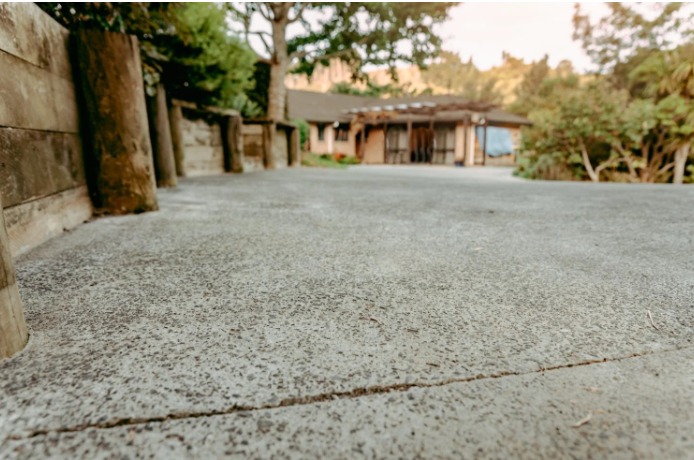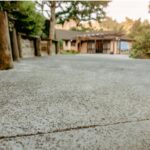A well-constructed driveway made of concrete can add value, curb appeal, and long-term durability to your home. In Auckland, homeowners increasingly opt for concrete driveways Auckland because of their strength, low maintenance, and versatility in design. This guide will take you through key factors: choosing the right concrete mix, finish types, installation process, cost considerations, and how to maintain your driveway so it lasts.
Why Choose Concrete Driveways Auckland
Concrete driveways are popular for several reasons, especially in Auckland:
- Durability & Strength: Concrete handles heavy vehicle load, variable weather, and wear better than many other materials.
- Low Maintenance: Properly installed concrete needs little beyond cleaning and sealing to stay in good shape for many years.
- Design Flexibility: Colour, texture, decorative finishes, exposed aggregate or stamped patterns give homeowners lots of options.
In areas exposed to coastal moisture, rain, or sun — all common in Auckland — concrete’s ability to resist erosion, rutting, and deterioration makes it a smart choice.
Key Considerations for Concrete Mix & Specification
Getting the concrete mix right is crucial for driveways in Auckland. The region’s climate and ground conditions affect how concrete performs over time.
Strength & Thickness
- Driveways typically require higher compressive strength. A mix that can reach at least 25-30 MPa (megapascals) is common for residential driveway use.
- Thickness matters: For most single-vehicle driveways, 100mm to 125mm concrete slab thickness is standard. If heavy vehicles or regular parking of trucks is expected, thicker slabs or reinforced concrete may be required.
Aggregate Selection
- Well-graded aggregate (10-20mm) helps with strength and durability.
- In decorative finishes, exposed aggregate or pebbles can be used for visual interest and slip resistance.
- If near coast, consider aggregates that resist salt corrosion and choose aggregates with good drainage.
Water-Cement Ratio & Admixtures
- Lower water-cement ratio increases strength and reduces shrinkage and cracking risk.
- Admixtures like plasticisers help workability without weakening the mix.
- Air-entrainment is useful in areas that experience freeze-thaw or sudden temperature changes; helps reduce internal stress.
Reinforcement & Joints
- Steel mesh or fibreglass reinforcement is often included to control cracking.
- Control joints or contraction joints are essential. These allow for expansion/contraction of the slab and reduce random cracking.
Popular Finishes & Design Options
How the driveway looks matters almost as much as how it performs. Auckland homeowners are choosing different finishes depending on taste, budget, and maintenance expectations.
| Finish Type | Appearance & Benefits | Considerations |
| Plain / Smooth Troweled | Clean, modern look; easy to maintain | Can be slippery when wet unless sealed or textured |
| Exposed Aggregate | Texture, visual depth, good grip | Higher cost; more labour; sealing required to maintain look |
| Brushed / Broom Finish | Good traction; classic look; less slippery | Brush grooves collect dirt; may require periodic clean-ups |
| Coloured Concrete | Adds personality; can match house trim, landscaping | More expensive; colour fading possible with UV exposure; requires pigment that holds up in local climate |
| Stamped / Patterned Concrete | Mimics stone or pavers; decorative edge | Higher cost; more complex installation; may require specialists |
Installation Steps for a Concrete Driveway in Auckland
Installation Steps for a Concrete Driveway in Auckland
Understanding what’s involved helps homeowners plan well and get accurate quotes.
- Site Preparation
Clear the area, remove old driveway or vegetation. Level the ground, ensure proper slope for drainage. Install sub-base (gravel or compacted fill) to avoid settling. - Formwork & Reinforcement
Set up wooden or metal forms to shape the driveway edges. Place reinforcement (mesh, rebar) if required. Position control joints if needed. - Pouring & Finishing
Pour concrete mix. Work quickly to level, screed and float. Apply the finish (broom, exposed aggregate, textured, etc.). Insert control joints. - Curing
Keep the concrete moist for several days (often 7 days) after pouring. Curing is essential to reach desired strength and avoid surface cracking. - Sealing & Final Touches
After curing, seal if required (depending on finish). Add borders, landscaping, and ensure driveway transitions cleanly to lawn, pavements or garages.
Cost Factors & Approximate Prices
Several things affect cost when getting concrete driveways Auckland:
- Size and shape of driveway
- Type of finish (plain, coloured, exposed aggregate are cost tiers)
- Thickness and amount of reinforcement
- Site conditions: slopes, ground stability, access
- Accessibility and local labour rates
- Permits or compliance with council requirements
As a rough guide, average rates in New Zealand for concrete driveway installation can range from NZD $75 to $150+ per square metre depending on methods and finish. ($75-90 for basic, smooth concrete; higher for decorative or high-end finishes).
Maintenance Tips for Longevity
A concrete driveway’s lifespan depends not just on build but ongoing maintenance.
- Clean regularly: sweep away debris; power wash occasionally
- Seal surfaces (especially exposed aggregate or coloured finishes) to protect from water, stains and UV damage
- Repair small cracks early to prevent them expanding
- Avoid de-icing salts or harsh chemicals which can damage concrete surfaces or reinforcement
- Ensure drainage remains effective—ponded water is a common cause of damage
FAQs
How long will a concrete driveway last in Auckland’s climate?
With good installation and maintenance, concrete driveways can last 25-30 years or more. Coastal exposure, heavy loads, or poor maintenance will shorten lifespan.
Do I need council approval for a driveway in Auckland?
It depends on your area and local council. Altering vehicle crossings, changing kerb alignment, or altering drainage may require permission. Always check with your local Auckland Council.
What’s the best time of year to install concrete in Auckland?
Late spring to early autumn is ideal. Dryer and milder conditions help with curing and minimise risks of delayed setting due to rain or cold.
Can I combine finishes (for example, exposed aggregate borders & smooth centre)?
Yes. Many homeowners opt for decorative borders or bands and a simpler centre area. This gives visual interest without full decorative cost.
Summary
Concrete driveways Auckland offer a solid investment when you want durability, easy maintenance, and flexibility in design. By selecting the right mix, finish and installation method — and looking after it properly — you can ensure your driveway remains functional and attractive for decades. If you’re considering a driveway upgrade, make sure to choose a contractor who understands local climate factors, council requirements, and delivers high-quality workmanship.




